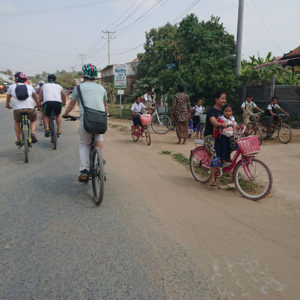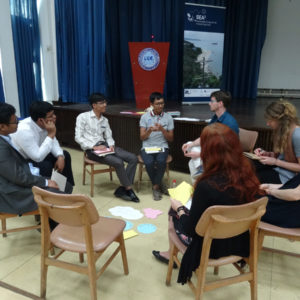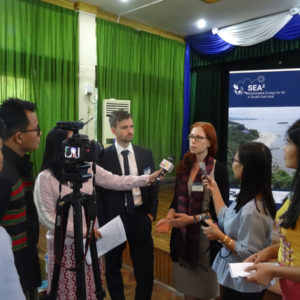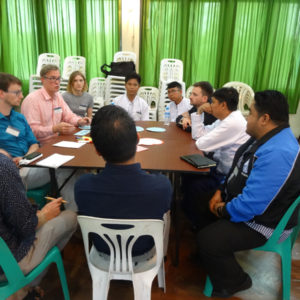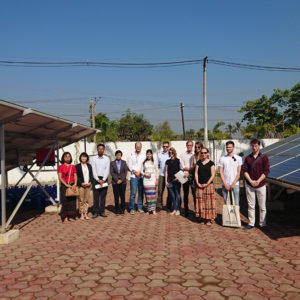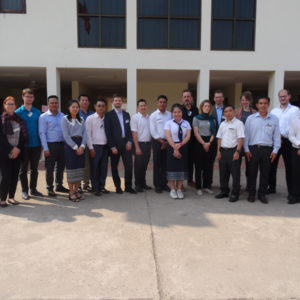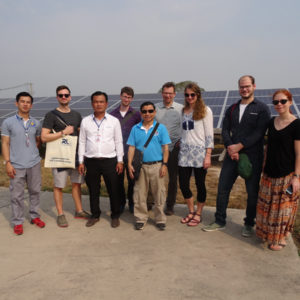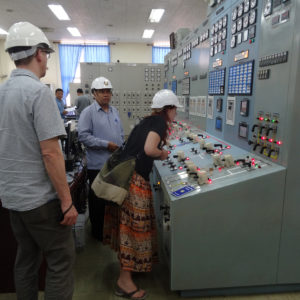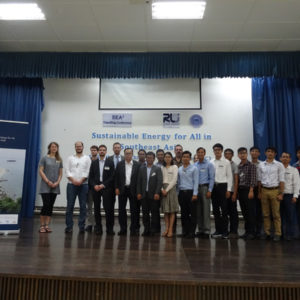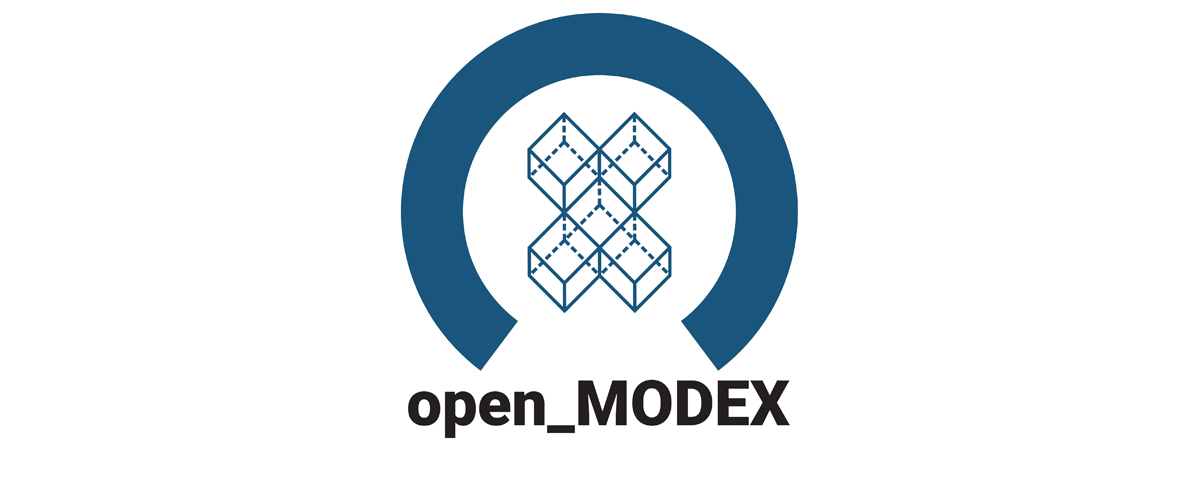
Kick-off workshop open_MODEX
6. March 2019
solar4food
13. March 2019A look back at the Travelling Conference 2019
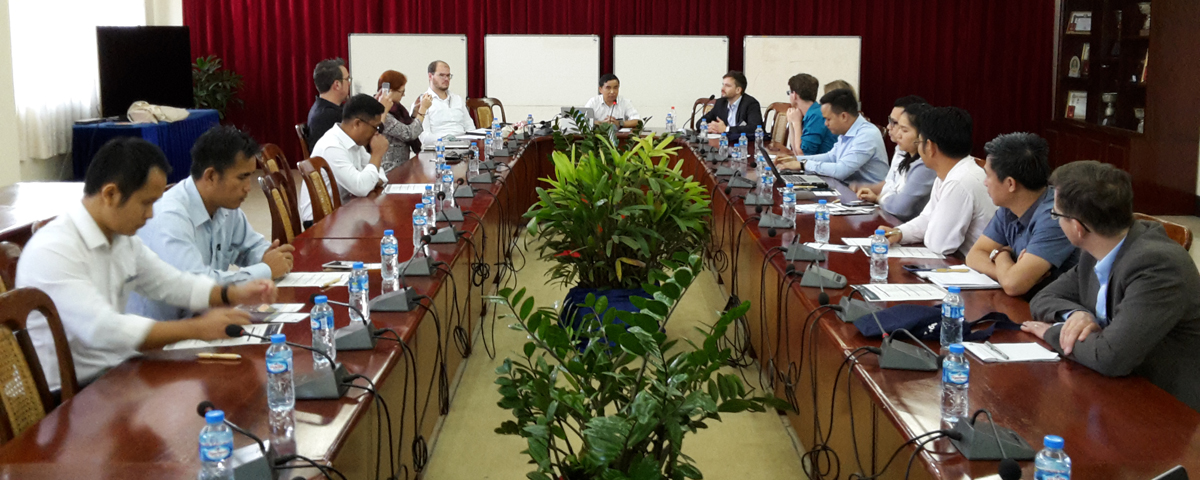
March 11th 2019 – Ten days of travelling through Southeast Asia: During the second Travelling Conference (SEA²), a three-member RLI delegation visited Myanmar, Cambodia, and Laos from February 7th to 15th. Their aim was to exchange ideas with local partners on renewable energy for a sustainable energy supply in Southeast Asia.
The Travelling Conference is a series of projects funded by the German Federal Ministry of Education and Research (BMBF) with the aim of strengthening cooperation between international partners on current research topics. SEA² stands for Sustainable Energy for All in Southeast Asia, and workshops, discussions, and excursions took place in this field of research, which were headed by RLI experts.
In addition to Catherina Cader, Katrin Lammers, and Paul Bertheau, who travelled to Southeast Asia as RLI delegates, various experts and young researchers took part in the Travelling Conference. Among the German academic partners was Europa-Universität Flensburg, Martin-Luther-University Halle-Wittenberg, and University of Kassel as well as Monash University Australia as an additional partner in Myanmar. Solarkiosk and Fosera represented small and medium-sized enterprises. The international host organizations were the Department of Research and Innovation Myanmar (DRI) in Yangon, the Institute of Technology of Cambodia (ITC) in Phnom Penh, and the National University of Laos (NUoL) in Vientiane, which hosted the events at the respective locations and organized the field trip.
The first stop of the tour was the DRI in Myanmar’s capital Yangon, where the conference guests were welcomed by Win Khaing Moe, Director General of the DRI. During the workshop, Catherina, Paul, and Katrin gave lectures on the current state of research, the challenges of a sustainable energy system transformation, and future cooperation possibilities and funding options. In a panel discussion, the participating experts were able to exchange views on research needs and synergy effects.
A television team from the Myanmar TV channel MRTV accompanied the first workshop day. The report, in which the three RLI experts were interviewed, was broadcasted on the same evening. It can still be viewed on YouTube:
In Yangon, the delegation visited two photovoltaic plants within the city limits, which showed the awareness for a sustainable and reliable power supply also in grid-connected regions.
In Phnom Penh , the second venue of the conference, the exchange between the international partners and the presentation of the respective research activities began after a welcome greeting of the deputy general director of ITC, Thavarith Chunhieng.
The conferences’ closing took place in Vientiane. Saypaseuth Bouapha from the Department of Energy Policy and Planning of the Lao Ministry of Energy and Mining spoke about the country’s goals. After the workshop phase, the program was complemented by a field trip to the Nam Ngum 2 Hydroelectric Power Project and an On-Grid Solar Photovoltaic Plant outside Vientianes.
The excursions served as practical examples for the work of local institutions and gave insight into the development of renewable energy in the hosting countries. They complemented the extensive discussions about the possibilities to improve sustainable energy access in the respective countries as well as the technical and socio-economic implications of different developments that took place in the workshops.
Through intensive work with the institutions in the three countries visited, RLI was able to get to know the research fields and identify interfaces between its own work and those of the other German partners.
“The Travelling Conference was a complete success for us,” says Catherina Cader of RLI, who took part in a Travelling Conference for the second time. “We are convinced that the trip was only the first step towards future collaboration and that together with the partner institutions, we can support access to renewable energy in Southeast Asia. The fact that representatives of small and medium-sized enterprises were present proved to be a great advantage, as we were able to gain a much deeper insight into concrete energy access measures.”
RLI will use the knowledge gained to further develop the content of the domestic and foreign research network in the field of sustainable energy supply in Southeast Asia together with the newly acquired partners.
© Images: RLI
Images
- Cycling in Cambodia
- Group discussion in Cambodia
- Burmese TV team interviewing RLI-experts
- Group discussion in Myanmar
- Field trip to a solar power system in Myanmar
- Participants in Laos
- Solar power sytem in Laos
- Catherina on a field trip in Laos
- Participants in Cambodia





